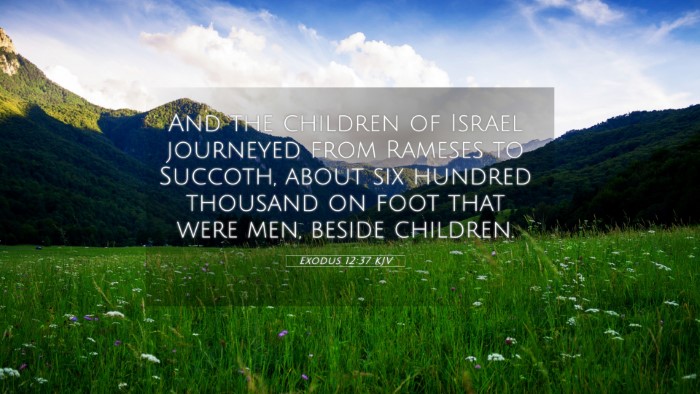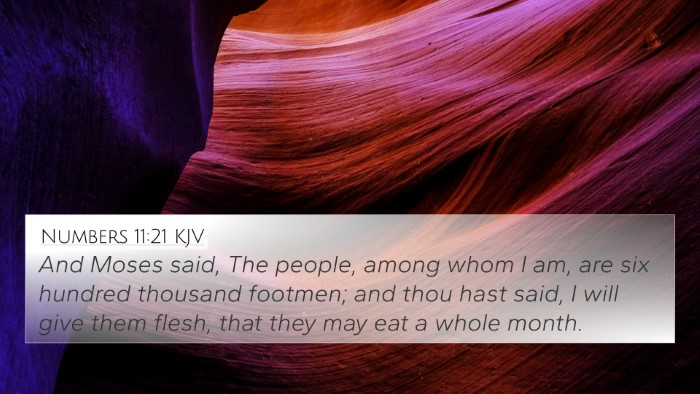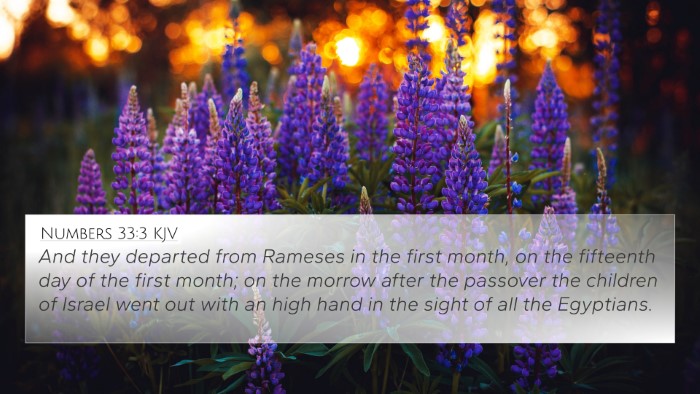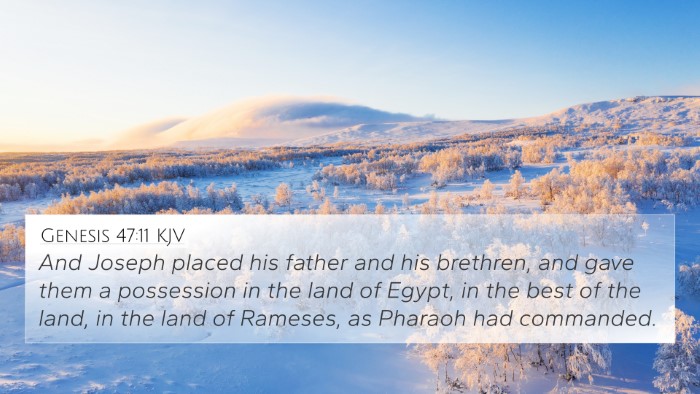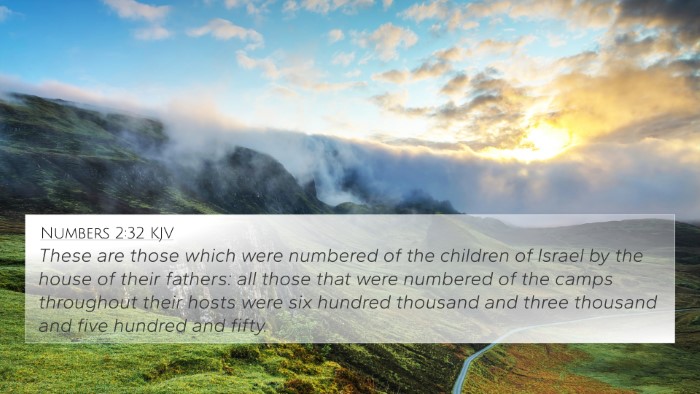Exodus 12:37 - Meaning and Interpretation
Exodus 12:37 states: "And the children of Israel journeyed from Rameses to Succoth, about six hundred thousand on foot that were men, beside children."
This verse captures a significant moment in the history of the Israelites as they leave Egypt after their deliverance from bondage. Below, we present a summary of insights derived from public domain commentaries, focusing on the meaning and implications of this crucial scripture.
Key Insights from Commentaries
This verse reflects profound theological and historical themes. Here’s a synthesis of the interpretations from renowned biblical commentators:
-
Matthew Henry:
Matthew Henry highlights the miraculous aspect of this journey, emphasizing God’s power in leading His people out of slavery. He notes that the number of men alone, “about six hundred thousand,” illustrates not just the magnitude of the exodus but also God's faithfulness to His covenant promise made to Abraham, Isaac, and Jacob regarding their descendants.
-
Albert Barnes:
Albert Barnes draws attention to the significance of the locations mentioned, Rameses and Succoth. Rameses, as the starting point, reflects the place of Israel's oppression, while Succoth represents an initial step towards freedom. He also comments on the number mentioned, contextualizing it within the broader narrative of God's providence and care for His people.
-
Adam Clarke:
Adam Clarke elaborates on the logistical feat of organizing such a large group and the logistics involved in their journey. He also discusses the theological implications, focusing on the themes of deliverance and worship, noting that this exodus marks the beginning of Israel as a nation chosen by God.
Thematic Connections
The departure from Egypt serves as a pivotal moment in the narrative of the Old Testament. The implications of this mass exodus resonate throughout the biblical text, establishing a pattern of God’s deliverance and covenantal faithfulness.
Cross-Referencing Biblical Texts
Below are several Bible verses that relate to Exodus 12:37, illustrating inter-biblical dialogue and connections between themes of liberation and divine promise:
- Genesis 15:13-14: God foretells Israel's exile and subsequent deliverance.
- Exodus 3:17: The promise of deliverance from slavery in Egypt.
- Leviticus 26:13: God's promise to set His people free.
- Psalm 105:43-45: God's faithfulness to His people during the exodus.
- Isaiah 43:2: God’s assurance of protection during trials.
- Matthew 2:15: Reference to Israel as God’s son, reflecting God’s ongoing relationship with His people.
- Hebrews 11:29: A reflection on the faith of the Israelites as they cross the Red Sea.
Understanding the Exodus Narrative
The exodus narrative is not only a historical account but also a powerful metaphor for spiritual freedom. The journey from Rameses to Succoth signifies transformation—from oppression to liberation, which resonates deeply with themes of redemption throughout the scripture.
Tools for Bible Cross-Referencing
To fully appreciate and explore the connections between Bible verses, one can utilize various tools and resources. Here are some methods for effective cross-referencing:
- Bible Concordance: A comprehensive index of biblical terms that aids in finding related verses.
- Bible Cross-Reference Guide: Access guides that link verses by themes, providing a structured approach to study.
- Cross-Reference Bible Study: Engage in studies that systematically explore themes across biblical texts.
- How to Use Bible Cross-References: Familiarize oneself with methodologies for identifying and correlating scripture.
- Comprehensive Bible Cross-Reference Materials: Leverage study Bibles with built-in cross-reference listings.
Conclusion
Exodus 12:37 serves as a cornerstone in understanding God's liberating power and the significance of His covenant with Israel. Through a combination of historical context, thematic exploration, and cross-referenced scripture, the depth of this biblical account can be fully appreciated. It stands as a testament to the faithfulness of God in redeeming His people, a theme that resonates throughout the entirety of the Bible.

